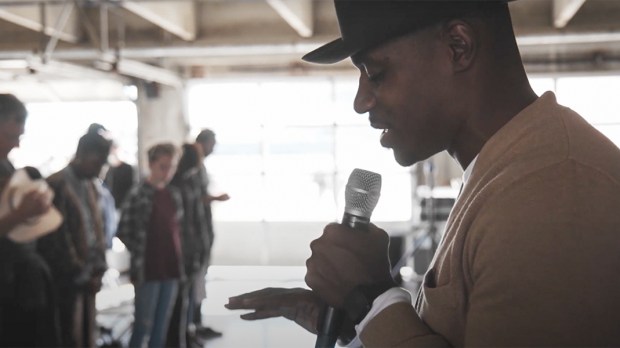Lenten Campaign 2025
This content is free of charge, as are all our articles.
Support us with a donation that is tax-deductible and enable us to continue to reach millions of readers.
“Everybody worships,” David Foster Wallace once remarked. “The only choice we get is what to worship.” The religious landscape of the United States, to be sure, has shifted in recent years. More than a quarter of the country is now made up of unaffiliated “nones,” and less than half of Americans attend church regularly. We are losing our religion—and fast.
But Wallace was right. We aren’t losing our worship, because everybody worships. Everyone treats something as ultimate, as that which informs and orients everything else in life. It’s just that, more and more, it seems that what we’ve chosen to worship is politics—a strange god that generates such clannish, dogmatic, and proselytizing attitudes as would make some rogues of religious history blush.
Then again, maybe Wallace missed something. We have another choice in the matter: we can choose to deny what it is we really worship.
This is the temptation facing Christians in our increasingly polarized and politically feverish country: Is one’s faith—measured against the Bible in the case of evangelicals, and both the Bible and Tradition in the case of Catholics—informing one’s politics? Or, through a gradual identification of the two in our hearts and minds, has it really turned the other way around?
This question of how to recover a right relationship between faith and public life is at the heart of
, a brief but valuable documentary from Ryan Patch and the Initiative on Faith & Public Life that will be a breath of fresh air for Christians and non-Christians alike. Those looking for a clear cut ideological stance will be disappointed; instead, For Love of Neighbor quietly but resolutely seeks to buck the trend of division, recovering a broad and hopeful sense of spiritual reflection, social civility, and public service—and the vital link between them.Through insights from measured, humanizing voices like Russell Moore, Arthur Brooks, and Fr. Aquinas Guilbeau, OP (the senior editor at Aleteia), the film puts faith and morals where they belong, and where the founders largely intended them to belong: at the foundation of who we are. “Policy is not ultimately where you’re going to find your greatest hope,” Sen. Ben Sasse remarks at one point in the film. “The center of the picture is something much more interesting than the frame. Politics are just the frame. But the center of the picture is the good and the true and the beautiful.”
This right relationship puts politics in its place without denying or downplaying its importance in effecting real and lasting change, both for communities and individuals. Patch underscores the value of public service as a means of working toward the common good by focusing on the work of Sarah Imboden, a Catholic mom serving on her town board in Red Hook, New York, and Sen. Tim Scott, a Republican whose “opportunity zones” legislation is designed to aid economically disadvantaged neighborhoods like the one he grew up in.
But this vision of both a recentering on faith and a refocusing on civic engagement crystallizes most clearly in the film with Justin Giboney, the cofounder (along with Angel Maldonado and rapper Sho Baraka) of the AND Campaign. “Urban Christians . . . must rebuild our sociopolitical platform and infrastructure, while demonstrating that our faith is more important than our politics,” the organization’s website states. “We do not have the luxury of either focusing on social justice or values-based issues; both affect the foundation of our communities and are inseparably tied together.”
In the film, Giboney acknowledges the central importance of religious faith—not only as transcending civic life but as ultimately grounding it. “The civil rights movement really shows you: yes we want to change systems, yes we want to change policy, but there’s something ultimate, which are these Christian principles that are even more important than that. And if we start to compromise that, then we get into the situation that we’re in today. . . . It does not mean that you don’t aggressively engage your opponent. . . . It means that you don’t hate them. That’s not reasonable; that’s not logical. The only way that you can do that is if you have a transcendent theology.”
Yet Giboney also acknowledges the importance of getting involved in the political system: “I’m not saying that I love the two-party system. But in that we have a two-party system, I do believe that Christians should involve themselves in partisan politics. . . . It allows you to help mold the agenda.”
Nevertheless, a film like For Love of Neighbor comes at a time when Christians (and arguably Americans at large) are increasingly dissatisfied with both of the major parties and anxiously looking for some alternative. One thinks, for example, of John Piper’s recent essay decrying the destructive influences of both parties, or the slow but steady rise of the American Solidarity Party. Might Americans be ready for a new political direction? And might Christians, through the radical both/and of the Gospel, be the ones to help shape what that direction looks like?
Time will tell. But in the meantime, especially as we hurtle headlong into an uncertain election, may the love of neighbor—one rooted in a worshiping of God and a using of politics, and not the other way around—grow.
For Love of Neighbor will be available publicly free of charge later this fall, but you can request a complimentary viewing or a screening now through the form on the documentary’s website.

